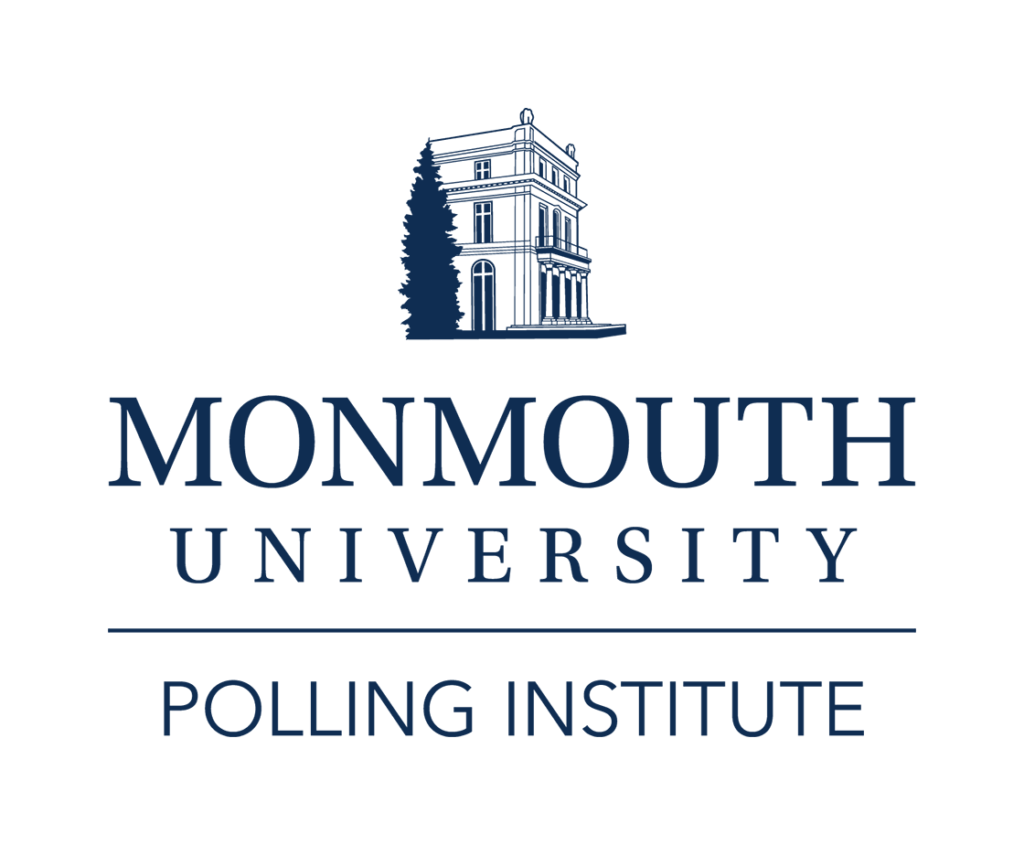West Long Branch, NJ – Coming off a bitter defeat in Indiana, Hillary Clinton is in position to get a healthy dose of Garden State love when the primary season ends in June. The Monmouth University Poll gives Clinton a nearly 2-to-1 lead in New Jersey’s primary. The poll also finds that most Democratic voters feel that picking Sen. Cory Booker as her running mate wouldn’t give her campaign much of a strategic advantage.
Clinton has the support of 60% of likely Democratic voters in New Jersey while Sanders’s support stands at 32%. Clinton holds a lead among nearly every demographic group in the electorate, including voters age 50 and older (70% to 25%), voters under 50 (51% to 38%), black voters (64% to 24%), white voters (60% to 34%), and women (69% to 22%). The only group where Sanders is competitive is among Democratic men, earning 45% to 49% for Clinton.
“Despite her loss in Indiana, it looks like Clinton is on target to corral the delegates she needs for the nomination. New Jersey is shaping up to make a significant contribution to her final total,” said Patrick Murray, director of the independent Monmouth University Polling Institute.
As Clinton slogs her way to the nomination, speculation around possible running mates has intensified. One possibility bandied about by the media is Booker, the junior U.S. Senator from New Jersey. While few of the state’s Democrats think he would be a bad choice, many say he doesn’t necessarily give Clinton a boost in November. Overall, 33% say Booker in the vice presidential slot would help a Clinton ticket while only 10% say he would hurt her chances. However, nearly half (48%) say adding Booker to the ticket wouldn’t matter either way.
“New Jersey Democrats don’t have anything against Booker. They just think Clinton might want to look elsewhere for a running mate who could give her a strategic edge,” said Murray.
Garden State voters have become used to being treated as an afterthought in the presidential nomination process. With Sanders vowing to carry the fight to the convention, though, the state’s Democrats are holding out hope that they might actually see some campaign activity. Nearly two-thirds say it is likely that either of the party’s presidential candidates will actually campaign in New Jersey in the coming weeks, including 28% who say this is very likely and 37% who say this is somewhat likely. Just 20% say it is unlikely that the state will see any presidential campaign activity from the Democrats.
Even if Clinton is able to get the delegates she needs to secure the nomination before June 7 th , 81% of likely Democratic voters say they will still turn out to vote in New Jersey’s primary, including 84% of Clinton supporters and 77% of Sanders supporters. Just 16% say they might stay home if the race is effectively over by then.
The Monmouth University Poll was conducted by telephone from May 1 to 3, 2016 with 301 New Jersey voters likely to vote in the Democratic presidential primary. This sample has a margin of error of ± 5.7 percent. The poll was conducted by the Monmouth University Polling Institute in West Long Branch, NJ.
DATA TABLES
The questions referred to in this release are as follows:
(* Some columns may not add to 100% due to rounding.)
1. If the Democratic primary election for president was today, would you vote for – [NAMES WERE ROTATED]
| May 2016 | |
| Hillary Clinton | 60% |
| Bernie Sanders | 32% |
| (VOL) Other | 0% |
| (VOL) Undecided | 8% |
| (n) | (301) |
2. Which of the following best describes where your decision stands at this moment: I am completely decided on which candidate I will support, I have a strong preference right now but I am willing to consider other candidates, I have a slight preference among a group of candidates I like, or I am really undecided among a number of candidates?
| May 2016 | |
| Already voted | 3% |
| Completely decided | 53% |
| Strong preference | 26% |
| Slight preference | 5% |
| Undecided | 13% |
3. How likely is it that either of the Democratic candidates will actually campaign in New Jersey in the coming weeks – very likely, somewhat likely, somewhat unlikely, or very unlikely?
| May 2016 | |
| Very likely | 28% |
| Somewhat likely | 37% |
| Somewhat unlikely | 14% |
| Very unlikely | 6% |
| (VOL) Don’t know | 15% |
4. If Clinton is able to get the delegates she needs to win the nomination before June Seventh, will you definitely still vote in the New Jersey primary or will you possibly stay home?
| May 2016 | |
| Definitely still vote | 81% |
| Possibly stay home | 16% |
| (VOL) Don’t know | 3% |
5. Do you think it would help or hurt Hillary Clinton if she chose Cory Booker to be her running mate, or do you think it wouldn’t matter either way?
| May 2016 | |
| Help | 33% |
| Hurt | 10% |
| Wouldn’t matter | 48% |
| (VOL) Don’t know | 9% |
The Monmouth University Poll was sponsored and conducted by the Monmouth University Polling Institute from May 1 to 3, 2016 with a statewide random sample of New Jersey voters drawn from a list of Democratic and unaffiliated registered voters, who participated in a primary election in 2012, 2013 or 2014 or voted in two of the last three general elections or have registered since 2014, and indicate they will vote in the Democratic presidential primary on June 7, 2016. The total sample of 301 likely voters includes 170 contacted by a live interviewer on a landline telephone and 131 contacted by a live interviewer on a cell phone, in English. Monmouth is responsible for all aspects of the survey design, data weighting and analysis. Final sample is weighted for age and gender based on state registration list information on the pool of voters who participate in primary elections. Data collection support provided by Braun Research (field) and Aristotle (voter list). For results based on the total sample, one can say with 95% confidence that the error attributable to sampling has a maximum margin of plus or minus 5.7 percentage points (unadjusted for sample design). Sampling error can be larger for sub-groups (see table below). In addition to sampling error, one should bear in mind that question wording and practical difficulties in conducting surveys can introduce error or bias into the findings of opinion polls.
| POLL DEMOGRAPHICS (weighted) | ||
| LIKELY DEMOCRATIC PRIMARY VOTERS | ||
| 43% Male | 21% 18-34 | 58% White |
| 57% Female | 32% 35-49 | 26% Black |
| 30% 50-64 | 11% Hispanic | |
| 18% 65+ | 4% Other | |
Click on pdf file link below for full methodology and results by key demographic groups.




